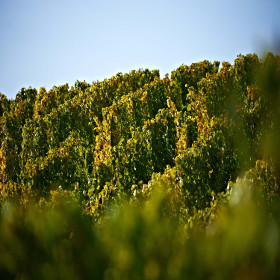Winery Domhof
Winemaker Alexander Baumann and his wife Chris run the Weingut Domhof in Guntersblum. Before he took over the business in 2004, he completed his training as a winemaker and viticulture technician. He completed part of his training in the renowned wine-growing company Keller in Flörsheim-Dalsheim and with the Keth family in Offstein.
As the name suggests, Domhof has a lot of history in the walls of this winery. Once the estate belonged to the cathedral convent Worms and in 1874 passed into family ownership. Wine has been produced here for four generations now. But enough of the old things. Tradition combined with a clear objective, high quality standards and passion creates great wines. Every wine has his love for the grape, for details and for his own work. For Alexander Baumann, high wine quality is a value that enriches life. The grapes he harvests and the wines he makes therefore have one main goal: LIFE QUALITY
In addition to the WEINGUT (winery) Alexander and Chris Baumann operate a SCHLAFGUT (hotel) with 12 double rooms, a CELEBRATION, which is ideal for hosting wedding and family celebrations as well as a TAGEGUT, where you can hold carefree meetings, relaxed meetings and successful workshops.
On the estate only German is spoken.




















